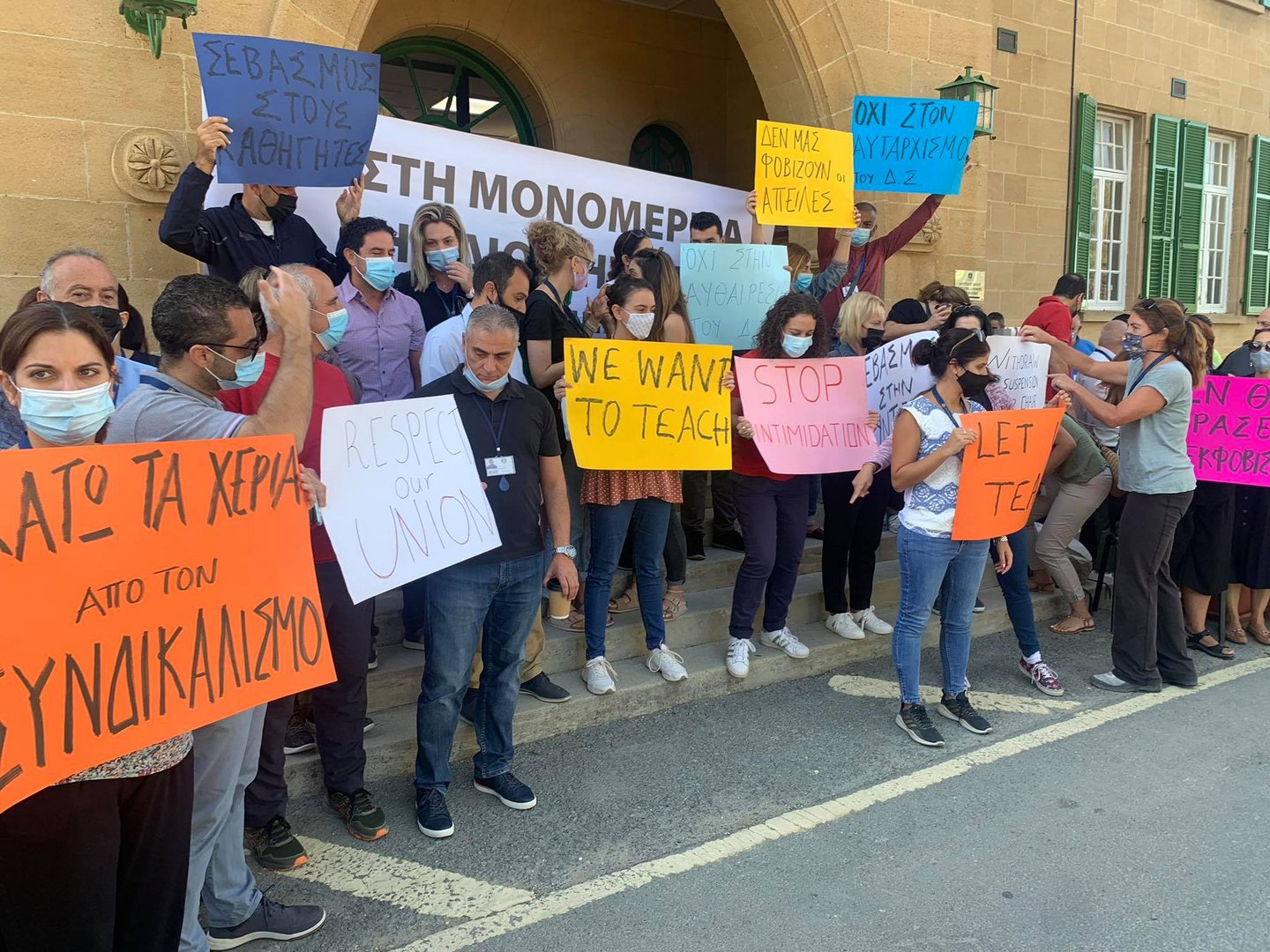The House education committee on Wednesday once again called on the English School’s staff union (Essa) and board of management to cooperate on finding common ground as the conflict between the two sides continues.
Committee chair Pavlos Mylonas said MPs discussed the problems arising from the continued disagreement, which became public last month after unresolved issues led to two tumultuous weeks punctuated by recurring stoppages on behalf of the staff.
Teachers went on strike as Essa head Myrto Hassapopoulou was set to be dismissed, after she allegedly used the school email system to send unauthorised correspondence to parents in a bid to detail the union’s unmet demands.
Despite the fact the two sides agreed to enter a dialogue mediated by the labour ministry, Mylonas said that “sadly it seems that this clash will continue to be drawn out and could sour again,” citing a conflict of opinion as the main issue.
Mylonas did not rule out further strike action, which he said the committee urged both sides to try to avoid, “because the only victims here are the children, the school’s pupils”.
Committee members were united in asking the warring sides to set aside their differences for the good of the pupils, with some suggesting it’s time for the president to intervene.
The union and board had been at odds over a number of issues, mainly to do with teacher contracts, which indirectly relate to the school’s legal status.
While in 2007 the Supreme Court ruled the school was part of private education, it is still regulated by a special legislation dictating that its management and maintenance are responsibilities of the state, which also means that part of its budget comes from state funding.
Board president Charalambos Josephides told MPs that the school receives a total of €400,000 in funding, both thanks to its legal status but also via grants for minorities.
According to Mylonas the committee will look into how these funds are managed and why the school’s financial practices have not yet come under scrutiny from the auditor-general’s office.
Addressing the committee, Hassapopoulou said that “the board considers the English School a private business and runs it as such,” claiming this was also confirmed by the labour ministry during the latest meeting attended by both sides.
She added that the school is “an institution with a strong democratic tradition, both in terms of its syllabus and the relationship between the board and the staff”.
Finally, she said the union has lodged complaints against the school’s headmaster with the ombudswoman, the labour department and the trade union registrar for “serious incidents of intimidation against staff members”.






Click here to change your cookie preferences